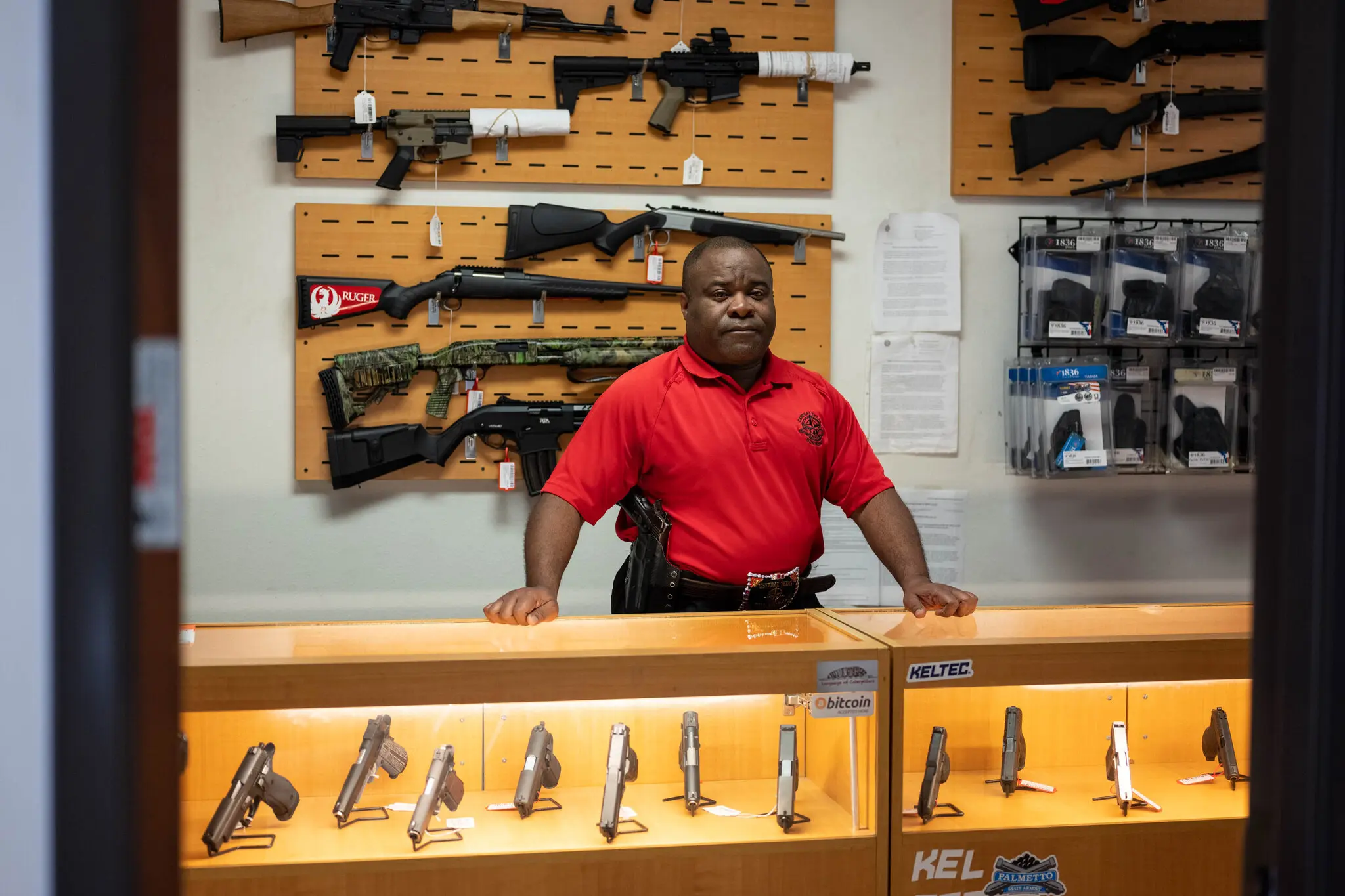The Supreme Court is scheduled to hear arguments Wednesday regarding the Trump administration’s rules implemented by the A.T.F. After the Las Vegas Massacre.
A man wearing a red polo shirt and a gun holster on his hip stands behind the counter, a gun displayed in a glass case. A long weapon hangs on the wall behind him.
Michael Cargill, owner of Central Texas Gun Works in Austin, opposes the ban on stock sales. Credit…Ilana Panich-Linsman
A simple device that increases the rate of fire in semi-automatic rifles is at the center of the case, which could overshadow government agencies’ ability to regulate firearms.
For Michael Cargill, an ardent gun rights advocate who sells firearms in Austin, accessories were a niche item on the shelves of his store, Central Texas Gun Works, until 2017. The group was mainly filled with wounded and disabled people, including veterans who needed shooting support and “people who just wanted to have fun,” he said.
But that year, a high-risk gambler on the 32nd floor of a Las Vegas hotel opened fire at a country music festival, killing 60 people and injuring hundreds. In his arsenal were 12 of his AR-15-style rifles equipped with this device.
Government officials quickly called for a ban, sparking alarm among gun store owners like Cargill, 54. Mr. Cargill is an outgoing Army veteran who said the assault and battery on his grandmother shaped his views on gun control.
“I was one of the few people who said, wait a minute,” Cargill said. Mr. Cargill is the president of the New Liberals and Civil Rights Alliance, a legal advocacy group that challenges the ban and primarily challenges what it considers illegal use. Administrative power. “It’s crazy that anyone would agree to this. This has to stop now.”
The Supreme Court will consider Wednesday whether the Trump administration acted lawfully in enacting a ban that would make it illegal to purchase or possess the work. This is not a Second Amendment case. Rather, it is one of several challenges aimed at limiting the scope of a government agency, in this case, the Bureau of Alcohol, Tobacco, Firearms, and Explosives.
“During the Trump administration, the emergency action ban emerged as a pretty egregious example of unlawful executive power,” Philip Hamburger, founder of the New Civil Liberties Union, said in an email. “Overnight, this rule turned 500,000 people into criminals. That’s not a power the Constitution gives the executive branch, so it’s litigious.”
Attorney General Elizabeth B. Preloger defended the government in a brief in court, saying reversing the ban “could cause significant harm to public safety.”
